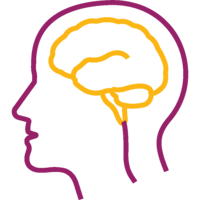
Wednesday, 24 July, 2024
Ever thought about the best time to see a cardiologist? Are you wondering if it's time to schedule that heart check-up? Or maybe you're experiencing symptoms that have you concerned about your heart health.
This blog aims to offer clarity and guidance on when it is appropriate to seek the expertise of a cardiologist.
Why Heart Health Matters
Heart health is crucial as the heart acts as our body's engine, tirelessly pumping blood and oxygen to every organ and tissue. A healthy heart ensures proper circulation, delivering essential nutrients and removing waste efficiently, thus playing a central role in maintaining overall health and vitality.
Unfortunately, cardiovascular diseases, including heart attacks and strokes, rank among the leading causes of death globally.
Symptoms of Heart Disease You Shouldn’t Ignore
Recognizing the symptoms of heart disease can prompt timely intervention and prevent complications. Look out for:
- Chest pain or discomfort
- Shortness of breath
- Fatigue
- Irregular heartbeat
- Dizziness or lightheadedness
- Swelling in the legs, ankles, or abdomen
- Nausea or vomiting
What Are The Risk Factors?
Understanding your risk factors can help you determine when to see a cardiologist. Common risk factors include:
- High blood pressure or hypertension
- High cholesterol levels
- Obesity
- Family history of heart disease
- Sedentary lifestyle
- Poor diet
At What Age Should You See a Cardiologist?
Wondering if you're too young or too old to see a cardiologist for heart failure? Here's when you should consider scheduling that appointment:
Young Adults (20s & 30s):
As you enter adulthood, it's time to take your heart health more seriously. Your 20s and 30s are crucial for establishing a heart-healthy lifestyle. Maintain a balanced diet, engage in regular exercise and yoga, avoid smoking and excessive alcohol consumption. While routine check-ups with a cardiologist may not be necessary for most individuals, it's wise to consult one if you have a family history of heart disease or risk factors like high blood pressure, diabetes, or obesity.
Middle Age (40s to 50s):
Once you reach your 40s, it's advisable to schedule a consultation with a cardiac specialist. This is a period when heart disease risk tends to increase. Tackling mental issues like depression and stress must be prioritized as they directly or indirectly contribute to heart disease. A heart specialist can assess your overall heart health, recommend lifestyle changes if needed, and conduct necessary screenings.
Golden Years (60s and Beyond):
As you enter your senior years, ongoing heart care becomes even more critical. Aging naturally affects the cardiovascular system, and the risk of heart disease continues to rise. Regular visits to a heart specialist can help monitor your heart's condition, manage any existing heart conditions, and adjust medications as needed.
Regular check-ups with the best cardiologist in Bangalore can help older adults manage these age-related changes and prevent heart disease complications.
Conclusion
While heart disease is more commonly associated with older adults, it can affect younger individuals too. If you're in your 30s and experiencing symptoms or have risk factors, don't ignore them.
By addressing common queries and concerns, we aim to empower individuals to prioritise their heart health and seek appropriate care when needed.
If you have any questions or concerns about your heart health, don't hesitate to reach out to a cardiologist at the best heart hospital in Bangalore at Kauvery Hospital for guidance.
Key Takeaways
- Heart health is crucial as the heart is the body's engine, ensuring proper circulation of blood and oxygen. Prioritizing heart health through lifestyle choices can reduce the risk of cardiovascular diseases and enhance overall vitality and longevity.
- Common risk factors for heart disease include high blood pressure, high cholesterol, diabetes, obesity, smoking, family history, sedentary lifestyle, poor diet, and chronic stress. Recognizing these factors helps in determining when to consult a cardiologist and implementing preventive measures.
- Adults over 40, young adults with risk factors, and children with congenital heart conditions, as well as individuals concerned about heart disease age 30 or above, should consider consulting a cardiologist.
- Cardiovascular diseases in the elderly pose a significant health concern. Aging is often associated with an increased risk of developing various cardiovascular conditions, such as coronary artery disease, heart failure, and atrial fibrillation, among others.
- Proactive measures, such as regular check-ups with a cardiologist and addressing concerns promptly, empower individuals to prioritize heart health and seek appropriate care.
Author by Dr. Gnanadev N C
Consultant - Cardiology
MBBS MD DNB
Kauvery Hospital - Electronic City


 Neurosciences
Neurosciences Bariatric Surgery
Bariatric Surgery